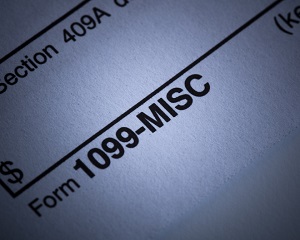Employers May Face Civil Actions for Damages for Improper Worker Classification
By Claire H. Taylor | Related Practices: Employment and Financial Services
Employers may already know that if they improperly classify a worker as an independent contractor/Form 1099 worker instead of as an employee, financial penalties and lawsuits can result. But in two recent employment litigation matters, it has become apparent that there is another potential risk of improper classification for employers. Recently, two U.S. district courts held that 26 USC 7434 may allow a worker to recover damages for improper worker classification and issuance of a Form 1099 instead of a Form W-2. Section 7434 authorizes an individual or entity who is issued a fraudulent information return to bring a civil action for damages against the person filing the fraudulent information return.
In Vanderbilt v. Boat Bottom Express LLC, 2019 WL 3323351 (S.D. Fla. July 24, 2019), the plaintiff’s claim involved unpaid overtime violations alleged against her former employer, but the plaintiff also asserted damages under 26 USC § 7434. The plaintiff alleged that her former employer fraudulently filed and issued to her a Form 1099 instead of a Form W-2, claiming she was actually an employee of the company. She then claimed damages as a result of the filing of the improper form. The Court held an evidentiary hearing on the issue of liability and damages under Section 7434, and found the defendants liable under the statute. The plaintiff had consulted a CPA and told the defendant twice that she should be classified as an employee and not an independent contractor, but she nevertheless received a Form 1099-MISC for her work for defendant. Based on these facts, the Court found defendant liable for statutory damages of $5,000 pursuant to Section 7434(b).
In a similar employment suit involving a claim of damages for an employer’s filing of a Form 1099 instead of a Form W-2, thereby misclassifying the plaintiff as an independent contractor versus an employee, the U.S. District Court for the Southern District of Florida allowed the case to proceed over defendant’s motion to dismiss where plaintiff alleged the company had filed the Form 1099 versus the Form W-2 to avoid paying tax. See Kinne v. IMED Health Prods., LLC, 2019 WL 2866787 (S.D. Fla. July 3, 2019).
These cases suggest that courts may be more receptive to damages claims against employers where the evidence supports it. This is particularly significant because it empowers the workers to raise damages claims over misclassification, not just claims disputing the amounts reported on any information returns filed with the IRS, which has constituted the majority of actions under this section in the past. These cases provide further incentive to employers to minimize risk by appropriately assessing and determining the classification of workers.
For further background about worker classification and how employers can avoid liability for worker misclassification, check out attorney Aviva Kamm’s blog post here.
